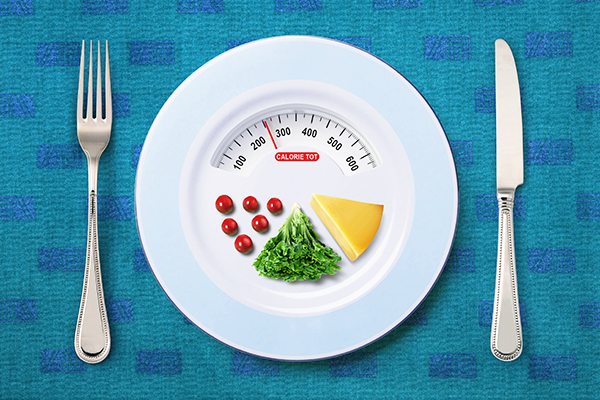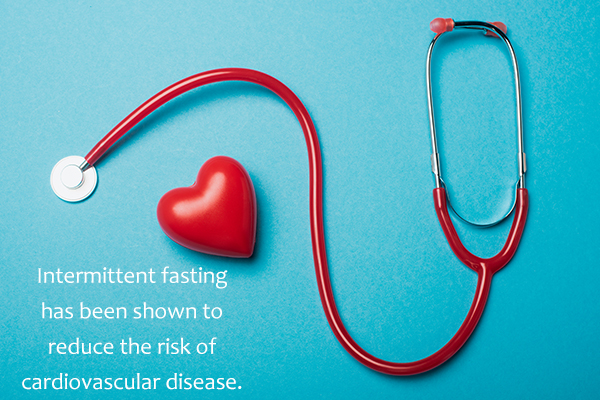In this article:
Intermittent fasting or time-restricted eating requires a person to consume food within a specific time period every day. This helps increase the catabolic rates in the body, wherein large molecules are broken down into simpler forms.

Intermittent fasting not only helps in losing weight but also has other benefits, including improved overall health.
The Concept of Intermittent Fasting
Intermittent fasting is one of the biggest trends in the diet community right now. It requires an individual to fast for a certain amount of time that they choose.
It varies from 12 hours of fasting with an 8-hour eating window to a more extreme approach called the 5:2. Herein, you eat an average amount of calories for five days and then 500–600 calories for the remaining 2 days of the week. (1)
Benefits of Intermittent Fasting
Intermittent fasting has several benefits, including:
- Weight loss and belly fat loss
- Improved insulin sensitivity
- Reduced risk of cardiovascular disease
- Improved gut health (2)
- Anti-inflammatory effects
- Cellular damage repair
- Lowered blood pressure
- Better overall blood profile
- Increased life span
There is a lot of research supporting that this type of diet aids those with health issues, (3) but there is limited research on those who are healthy and active.
Ideal Calorie Intake During Intermittent Fasting

This diet does not have a set number of calories for you to experience results. Every individual has different caloric needs, which can be calculated by age, weight, height, and activity level.
Basal metabolic rate (BMR) is the amount of calories your body burns when it is completely at rest. From there, you would need to calculate your total daily energy expenditure (TDEE), which also includes your activity level.
After this number is obtained, you can calculate the calorie intake for weight loss or weight maintenance. To lose 1 pound, 3,500 calories need to be burned from exercise or removed from the diet. (4)
I would always strongly suggest that before starting extreme caloric restriction (<1,200 calories a day), consult your doctor, especially if you have medical conditions or contraindications.
Different Ways of Intermittent Fasting
These are the ways to practice intermittent fasting:
1. 5:2 approach
This approach allows you to eat maintenance calories 5 days a week and then eat around 500 calories 2 days a week. Many people find this the “easiest” because they can commit to just 2 days a week.
Exercise is not suggested on your 2 days with extreme restriction, and overall it is not recommended when first starting intermittent fasting. (5)
2. 16:8 approach
16:8 or 12:12 seem to be the most common due to flexibility. Many people “need” to eat the second they get up or “can’t go to bed without a late-night snack.” In time-restricted fasting, it is important to keep the same times every day (yes, that includes the weekend).
3. Whole-day fasting
It involves only having one meal a day, which for most people is very difficult. It requires a lot of will power as well as eating smart. This meal would have to be very large and have a ton of protein, fiber, vegetables, and around 1,400 calories, at least, to stay full.
I suggest consulting your medical professionals before trying this style of fasting to ensure that you are getting all the nutrients that your body needs.
The Effectiveness of Intermittent Fasting for Weight Loss
Intermittent fasting only works if the person is in a caloric deficit!
It does not matter what time of the day you are eating if excessive calories are being consumed. Behavior pattern changes can also aid in weight loss because you become more conscious of when you are eating.
For example, in the past, you ate very “clean” and calorie-restricted all day, but your guilty pleasure was snacking on chips late at night. Mindlessly eating 350 calories worth of chips a night can add up to about ¾ pound a week.
Intermittent fasting may allow you to fit those guilty pleasures and avoid mindless eating or eating, triggered by an emotional response.
Intermittent Fasting Is Good for Cardiovascular Health

Intermittent fasting has been shown to reduce the risk of cardiovascular disease! A 2019 overview found that intermittent fasting causes the body to utilize fatty acids and ketones as energy sources. (6)
This affects the metabolism of lipids, thus helping in weight loss and also improving lipid profile (total cholesterol, triglycerides, and LDL cholesterol levels). (6)
Foods to Eat During the Fasting Period
You can only consume water, black coffee, or unsweetened tea during the fasting period. No foods should be eaten.
Proper Fluid Intake During Intermittent Fasting
Beverages are important during fasting, especially water. I cannot stress enough how important properly hydrating is. Plus, it will keep you fuller longer. You can also consume black coffee or unsweetened tea during the fast.
Even during eating periods, I would strongly advise against caloric beverages because they are filled with empty calories that will not leave you feeling strong, nourished, and full of energy. Instead, they will delay weight loss.
Does Intermittent Fasting Work Without Exercise?
Yes, intermittent fasting works without exercise. It depends on the type of fasting, but oftentimes, exercising, especially at first, is discouraged due to the extreme calorie restriction and to not overwhelm you with too many changes at once.
Difference Between Normal Fasting and Intermittent Fasting
The length of when someone does not eat and when the person chooses not to eat over a 24-hour period.
Is It True That Intermittent Fasting Improves Growth Hormone Levels?
There is no current research that supports intermittent fasting can improve growth hormone levels.
Can Intermittent Fasting Also Lead to Weight Gain?
Intermittent fasting can lead to weight gain when you overeat the amount of maintenance calories that you require. If the goal is weight loss, then you should still be aiming to eat in a calorie deficit.
A common myth is, “I can eat whatever because I fast.” This can be true to a degree because, naturally, you reduce the number of calories consumed by most likely skipping a meal with your fasting restrictions.
Harms of Skipping Breakfast During Intermittent Fasting
Research has found that if you skip a meal throughout your day, naturally, you become less active, and your cognition is affected negatively. (7)
An article published in the Journal of Nutrition found that skipping breakfast while following a reduced energy intake lowers the activeness of obese and lean people.
A 2017 crossover study also revealed that skipping or consuming a subpar breakfast can slow down your response, reduce attention span, and decline brain excitability. (8)
Side Effects of Intermittent Fasting

The common side effects of intermittent fasting include:
- Fatigue
- Irritability
- Low energy
- Hunger
- Headaches
Many of these side effects can vary depending on the health conditions and severity of your fasting period. These symptoms are brought on by your body switching from using glucose as energy to ketones. Ketones are produced when there is no readily available energy, so the body has to make alternative energy.
Final Word
I would suggest doing the type of fasting style you are comfortable with – know yourself. Focus on healthy lifestyle habits such as being active throughout the day, drinking more water, creating balanced meals, and avoiding mindless eating.
Plan to be realistic in your goals and consistent because these drive the results. Make sure to consult your health professionals to ensure safety before starting intermittent fasting.
- Was this article helpful?
- YES, THANKS!NOT REALLY


